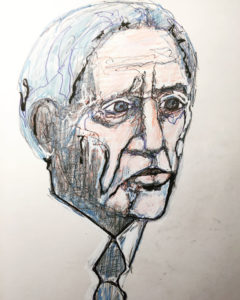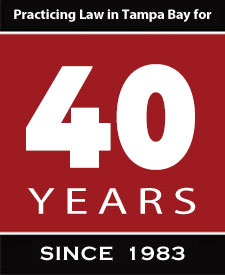
by Patrick Gaffney
Recently I was given the opportunity to give some remarks to the Canakaris Inn of Court on April 16, 2019. I share here some of the things I spoke about.
I don’t believe in coincidences. For example, it is no coincidence that this presentation falls on a very special week of the year. This Friday marks the beginning of Passover. Passover, or Pesach in Hebrew, is one of the Jewish religion’s most sacred and widely observed holidays. Passover commemorates the story of the Israelites’ departure from ancient Egypt, which appears in the Hebrew Bible’s books of Exodus, Numbers and Deuteronomy, among other texts. Jews observe the weeklong festival with a number of important rituals, including a traditional Passover meals known as a Seder, the removal of leavened products from their home, the substitution of matzo for bread and the retelling of the exodus tale.
I have always found it telling that a meal is involved in many important aspects of our lives. The formation of the Inns of Court movement in the United States was borrowed from the practice in England. The concept is that if you sit down to share a meal with a colleague, you are less likely to have difficulties with that person. I have found this to be generally true in life.
This is also Holy Week for Christians, a time for deep reflection upon the meaning of suffering. As family lawyers, we work closely with those who suffer. It is part of the job description.
My point is that whether you are religious or not, the practice of law is a spiritual exercise. In this practice we are given the privilege and obligation, to help people solve their problems. How we go about doing that says something about each and every one of us. After all, man’s highest calling is to assist other people to solve their problems.
For, to be lawyers in the truest sense of the word, we must have a conscience. Conscience is an inner feeling or voice viewed as acting as a guide to the rightness or wrongness of one’s behavior. Clients are often looking to their lawyers to model and to educate them on the type of behavior that is appropriate in a family law matter. In this context, lawyers should be guided by their conscience. How we act and how we present ourselves is important.
And the historical record reflects Sir Thomas More, a true man of conscience. He was an English lawyer, social philosopher, author, statesman, and noted Renaissance humanist. He was also a counselor to Henry VIII, and Lord High Chancellor of England from October 1529 to 16 May 1532. He wrote Utopia, published in 1516, about the political system of an imaginary, ideal island nation.
He refused to endorse King Henry VIII’s wish to divorce his wife, Catherine of Aragon, who did not bear him a son, so that he could marry Anne Boleyn, the sister of his former mistress. After refusing to take the Oath of Supremacy, he was convicted of treason and executed.
A Man for All Seasons is a play by Robert Bolt based on the life of Sir Thomas More. It won many Academy awards as a movie in 1966. The play portrays More as a man of principle, envied by rivals such as Thomas Cromwell and loved by the common people and by his family.
More argues repeatedly that a person is defined by his conscience.
Although it is the law that eventually forces More’s execution, the play also makes several powerful statements in support of the rule of law. At one point More’s future son-in-law, Roper, urges him to arrest Richard Rich, whose perjury will eventually lead to More’s execution. More answers that Rich has broken no law. It is only in following the process of the law and applying it to all individuals that justice is achieved. According to More, even the devil is entitled to the benefit of the law.
To the extent that we can convince our clients to follow the rule of law and to follow their conscience, we have succeeded. The life of Thomas More is a model to which we may all aspire.

